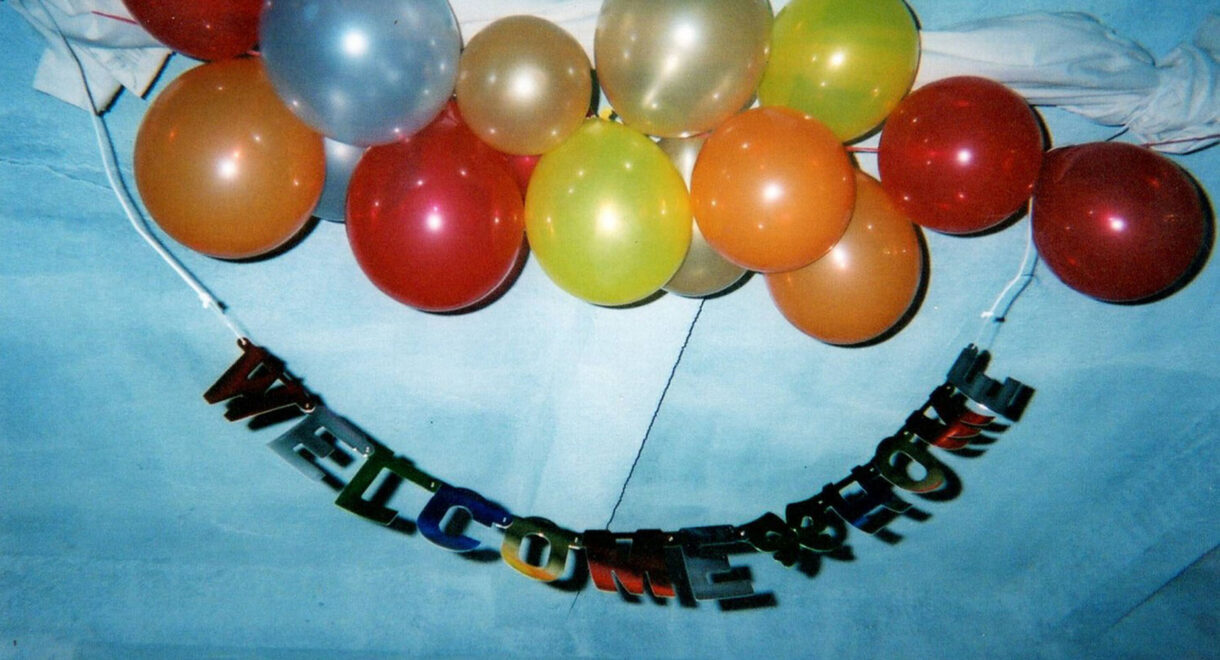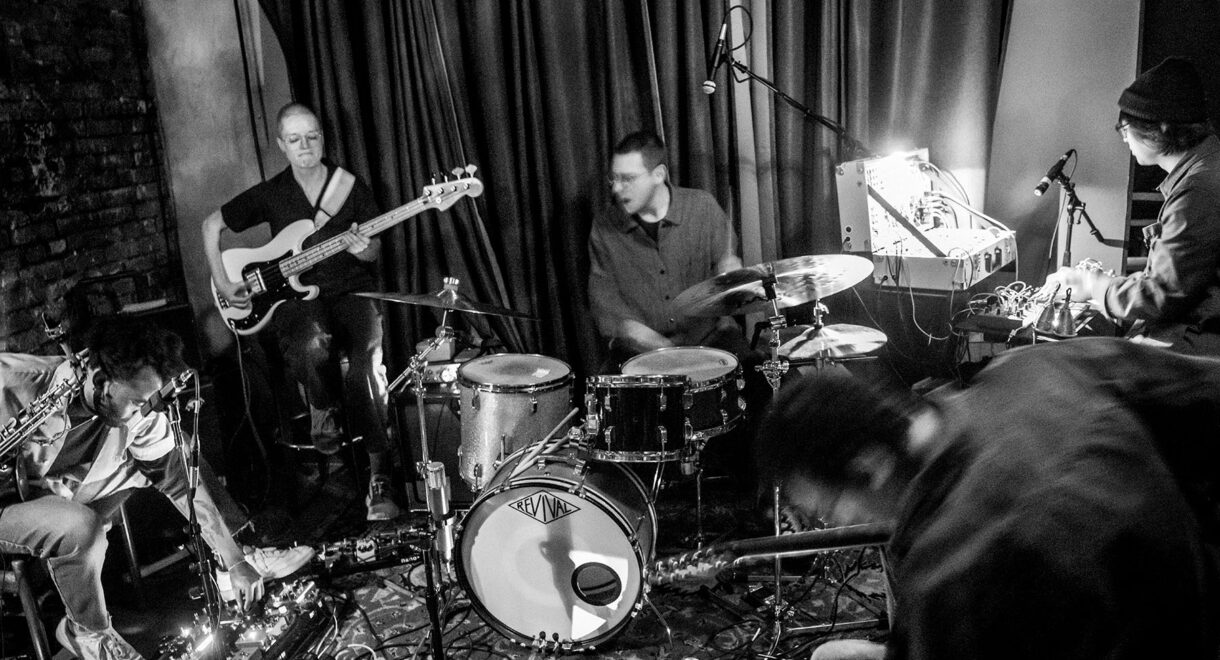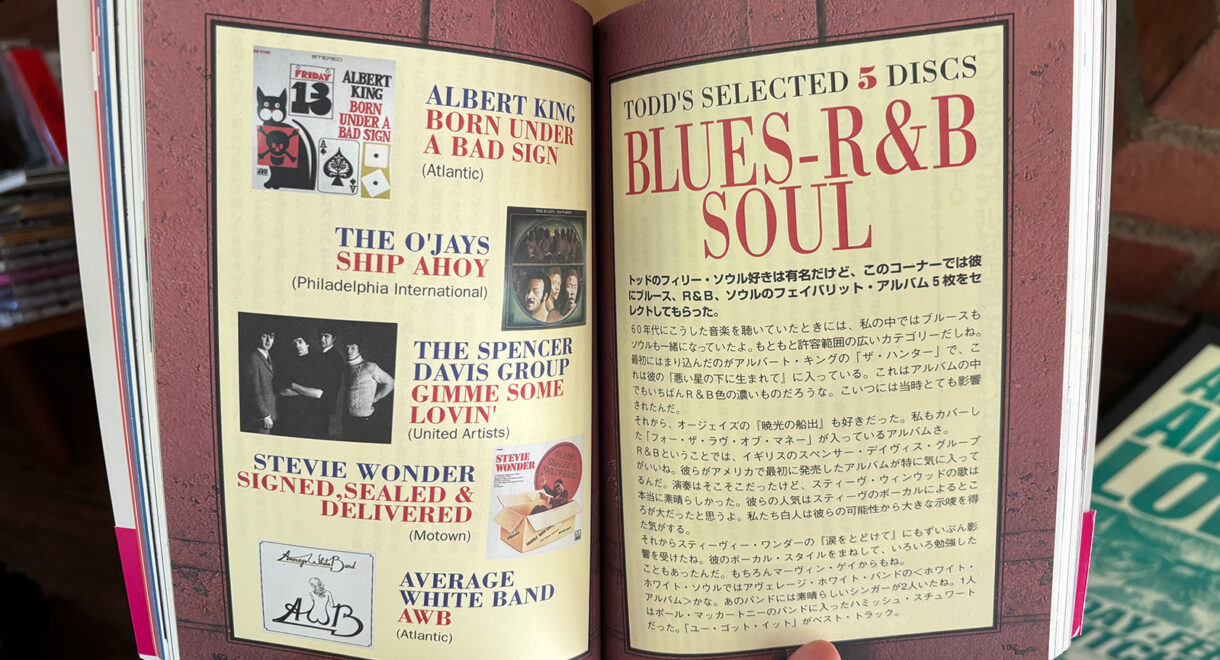Gelareh Khoie shares the story of thirtyninehotel, a legendary nightclub, art gallery, and performance space powered by Klipschorns from David Mancuso’s Prince Street loft parties. Love (Art & […]
Pharoah Sanders in his own words

A collection of interviews with the late great “Astral Traveler,” Pharoah Sanders.
This weekend the world lost a giant. Pharoah Sanders, whose singular approach to composition and performance helped guide the spiritual jazz movement, passed. He left behind some of the most transcendently untethered music ever recorded, music that upended not just the jazz world, but seeped into the psyches of millions of searchers and reconfigured their consciousnesses.
But you likely don’t need us to prattle on about his influence and sound. A host of essential appreciations have already been published, with more likely to come in the days and weeks ahead. The best so far is at Pitchfork.
Of one of his solos in “The Creator Has a Master Plan,” Andy Cush wrote that “[h]is incantatory tone, throaty and rich with overtones, seems almost ready to escape the vessel of the saxophone altogether, on a flight to the great beyond. But it also points earthward, at dancing bodies and nightclub walls and Arkansas; it sounds not altogether unlike something you might hear on a Fats Domino record.”
In addition to appreciations, an excellent overview of Sanders’ work can be found in Red Bull Music Academy archives, where friend-of-ISC Andy Beta wrote a deeply reported piece on Sanders’ work during his profound years with Impulse! Records. Writes Beta of his influence:
The music he made with large ensembles in the late ‘60s and early ‘70s drew from the jazz tradition, but elevated the form so as to embrace gospel, soul, African folk, R&B and what would soon be deemed world music, weaving it all into a tapestry that spoke of African-American identity, spiritual realization and world peace. Many of the players that Sanders brought into his band would become stars in their own right: Lonnie Liston Smith, Leon Thomas, Norman Connors, Gary Bartz, Stanley Clarke, Idris Muhammad, James Mtume and more.
“I listen to things that maybe some guys don’t,” Sanders told the New Yorker in a 2020 feature. “I listen to the waves of the water. Train coming down. Or I listen to an airplane taking off.”
From the 1968 book by Martin Williams, Jazz Changes:
“When I play, I try to adjust myself to the group, and I don’t think much about whether the music is conventional or not. If the others go ‘outside,’ play ‘free,’ I go out there too. If I tried to play too differently from the rest of the group, it seems to me I would be taking the other musicians’ energy away from them. I still want to play my own way. But I wouldn’t want to play with anybody that I couldn’t please with the way I play.”
Sanders when asked about the "meaning" of his music:
“I don’t like to talk about what my playing is about. I just like to let it be. If I had to say something, I would say it was about me. About what is. Or about a Supreme Being.”
“I think I am just beginning to find out about such things, so I am not going to try to force my findings on anybody else. I am still learning how to play and trying to find out a lot of things about myself so I can bring them out.”
From the July 1967 issue of Canada’s Coda magazine:
Interviewer: Do you feel it is important to keep searching, and possibly changing?
“How would I create without changing? It has taken me a relatively long time to get where I am now and I feel that I haven’t even touched on so many things yet. Most of all I have been trying to get a tone…my tone, that seems to be one of the most important things now. The further I shape my tone, towards the way I want it to sound, it will also influence my further musical reactions. Actually, it’s all in the mouthpiece. That is really very important. A lot of people should be working at that much harder.”
You mean mouthpiece as opposed to the fingering?
“Yes, you should control your mouthpiece completely so that you can get out of the music whatever you want … rather really put it in there…I might take two notes and make 8 or 9 more notes out of them by putting them into the horn in different ways. Every note has to be shaped. It’s different from just playing a pattern, out of a book or something, but that’s not really being creative. Creativity is purely natural ability. I try doing things, the more I feel the more comes out. I really couldn’t tell anybody how to do it. You can feel maybe just one note and you give that note so much feeling, as much as you can … and if you overblow it, it begins to go into something else…
“I just want to start out playing music and see wherever it will go into and let it do what it wants to. I’m not really planning what I’m going to do, as if I would be playing some commercial stuff. I’m just trying to let things happen. But then you need people with you who are able to realize when it starts to happen and who have the mental ability to release that energy you need to create. You know, in music energy is really nothing but emotion . . . Sometimes when you’re playing with a lot of emotion, the strength becomes the emotion. . I’m still trying to understand that myself . . A lot of things that I do myself, I still don’t know . . well, I know, but I can’t really explain that yet. I can’t put it into words.”
From an interview with All About Jazz (2003):
Have you lost the fire and brimstone in your playing from those days?
“I don’t know. Sometimes, things get very unseen to the public. You might see me working with the band right now, but I am working with this band right now because I had to break up another band that I was with because of personal problems. You just can’t have that when you are playing. You have to have guys that are straight. I may have lost a lot by looking at it that way. Before, I think I had like John Hicks and Idris (Muhammad) and some personal problem happened that don’t have anything to do with no music. I said that I was tired of it now and I have to find somebody that is going to do it now and be on time for the gigs and don’t give me any problems. I don’t want nobody on my gig drunk or doing some other drugs or whatever it may be.”
There are people who feel that Coltrane would never be where he is now without Sanders.
“Well, John would never be where he is now if he would never have listened to other people . . I listen to a lot of people too, playing their music, or maybe just when they’re talking, they’ll be talking in their different rhythms . . sometimes I listen to the sounds of the bath tub, the water dripping from the faucet, the sound of the heater . . but as far as we are concerned, it’s just two people out there playing, giving a lot to each other . . and the music will come out while we’re going alone, alone, or together, there really is no end to what could happen. That’s the way I’m thinking about it and that keeps the way open for change and creativity. I’ll just keep playing . . and try and keep everything everything… “
Though Sanders approached interviews with a certain wariness as he got older, across the decades he spoke at length about his craft, devotion to his saxophone, and lifelong conviction in the transcendent power of music. Below, some particularly notable excerpts.
How do you survive?
“I’ve been getting publishing royalties and stuff like that. I have just been lucky. They come in at the right time. Sometimes they don’t, but I am not wealthy or anything like that. I just love to work. I would rather work three hundred and something days out of the year. I would rather be working. They don’t know. I love playing. Then I can really get my music together. If I don’t do that, then my chops go down and stuff goes down. If I can get some good musicians together and have a good rhythm section, I can keep them working …
“Music can get involved where energy takes you to different places. You know that too. If I don’t go there, I don’t really feel like I have given the people enough. I am not a person who can get on the bandstand and play a million tunes for a set. I want to play as long as I have my horn, a long, long time, where one tune could be for the whole set. A lot of times, after a piano solo, the bassist thinks he should solo and I feel like the drummer should solo and the bass take the solo after the drummer and the bass can solo and he can take us in another direction.
“I remember a bassist that I used and he was always like this. He would take the band different places and he is doing some other things and that is Stanley Clarke. He always played and his energy would be so high that when he played his solo, he would go on and do what he wanted to do and then he would start something else. We would play one tune and after his solo, we would do some other thing. It keeps on moving and I never got tired of that. I wish I could get that back again. It is hard to try and tell a bassist to play a little longer or get into some other rhythms or different times or something. Make me do something.”
From Coda interview (’67):
“Once when John Coltrane came out to San Francisco, he was asking around about mouthpieces. So I told him that I had a bunch of mouthpieces, and that he could try them. I also said I would take him around to the different places in town if he wanted to try some more. I never thought he’d take me up on it, of course—he was a giant to me then. But he showed up one morning, saying, ‘Are you ready, man?’ I was really shook up! At the time, my own horn was in the repair shop and he offered to pay the bill so I could get it out. All day long we went around to pawn shops and more pawn shops, trying out different mouthpieces.”
What about the civil rights situation in this country?
“It’s not about race . . it’s about music. I really don’t know too well what is happening there. This thing has to be solved on a personal level but for that we will need all the strength we have. And I am just trying to play my horn and make music and I have a hard time keeping up with that . . To bring out what’s inside of me seems the only solution. We have to bring out God. God is everything, he is all colours and that’s really not so important. What I’m playing is about that, is about everything that is in me.”
“I don’t look at things and try to make them into something else what they really are not. Everything is everything, all the time. And I really don’t want to be worried about anything, newspapers, Vietnam, like that. I like to feel free. I want to gather as much knowledge about life as I can, no matter where it comes from. You know, even if it’s a drunk man, if he is talking some good sense, I’ll listen to him. He might have had a lot of experiences I can learn from . . You have to become very wise and aware so that you can start to know when things will be coming to you. I worry about things that I feel coming towards me. . people that are coming to me.”
You often use voices and chanting when you work with your own group. Does that have anything to do with it?
“I’m trying to bring out everything when I play. I might sing a line, go on from there and play and when I can’t find anything more to play, I’ll sing some more, over and over again until I feel I have reached something. You know, the music has changed a lot during the last few years. I stopped playing on chord changes some time ago, long before I started playing with Coltrane. They limited me in expressing my feelings and rhythms. I don’t live in chord changes. They’re not expanded enough to hold every- thing that I live and that comes out in my music. Just as you can’t really put a time clock on us these days. I don’t feel I can really create any music within a small length of time . . those 30, 40 minute sets in clubs, whatever their system is. . that is very restricting and that whole business thing limits your thinking. But most of all, music should always be creative and it takes a lot of energy to create. That’s really the most important change of all I find. A lot of people just don’t have that kind of energy to give to the music — or they haven’t learned yet how to release it.”
You feel that energy might be in everybody?
“Definitely. You already need a lot of it to really live, but then how many people get to that?”










